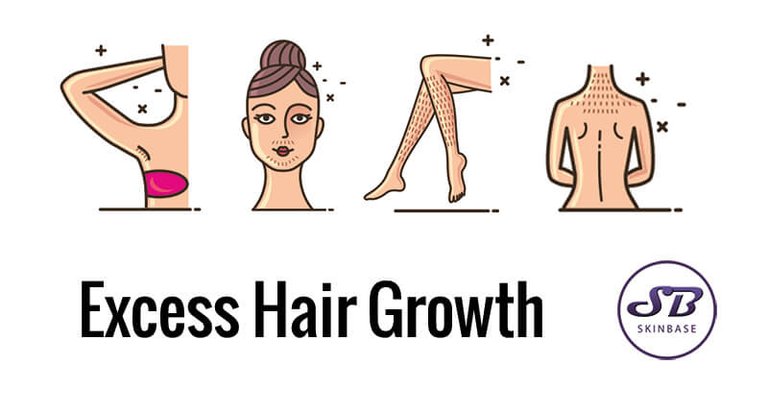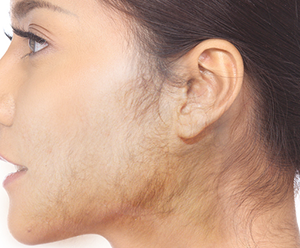Growing up, there was a popular opinion that any lady with beards–even a single strand of it–was an extremely wicked person. A wild guess would be that women with hirsutism were extremely stigmatized back then and this stigmatization led to them always being angry.

Automatically, I assumed that the women with beards were evil and in order not to grow some beards, I stayed a good person. My opinion about ladies with beards drastically changed when one of the kindest people I know grew a strand of beard. That couldn't be right, I thought. Because of this, I naturally went in to do some research about it.
Now, times have changed and women aren't really bothered as to what people think of their hirsutism. How do I know this? I recently saw a lady grooming her full beard in public. The beards looked really well taken care of and all the while my eyes were on her, she was brushing her full grown beards with an adorable smile.
If you are among those who still think a lady's degree of evil leads to her developing beards or you're still confused as to why this happens, then this post is for you.

Table of Content
- Definition
- Common symptoms and signs
- Causes and risk factors
- Treatment Options
- Summary and conclusion

What then is Hirsutism?

Hirsutism is a medical condition characterised by excessive hair growth on the body, particularly in women. It is often caused by an imbalance of hormones, specifically androgens(male hormones) such as testosterone.
The hair growth isn't just on the face. Other parts of the body like the back, chest and the legs can be equally affected.
Common Symptoms and Signs
Some common signs and symptoms which may be easily overlooked sometimes include;
- Excessive hair growth on the face, chest, back and buttocks.
- The emergence of coarse or thick hair.
- Unusual Acne
- Male-pattern baldness or hair thinning(receding hairline).
- Deepening of the voice
- Enlargement of the clitoris.
Causes and Risk Factors
Some notable causes and possible risk factors include
An imbalance in the level of hormones.
Polycystic ovary syndrome(PCOS): this is one of the most popular causes of hirsutism and many people living with it do not know about it. Some pointers to PCOS could be irregular menstrual cycles, weight gain and obesity (especially in the midsection).
Tumours or cysts in the ovaries or adrenal glands.
Taking certain medications that have a direct or indirect effect on hormone levels.
Family history: genetics play a very significant role in hirsutism.
Treatment
Treatment greatly depends on the underlying cause and may include hormonal therapies, medications to reduce hair growth and cosmetic treatment such as waxing or electrolysis.
Summary and conclusion

Hirsutism is a complex condition that affects millions of women worldwide.
It doesn't necessarily make a lady any less of a female. If anything, it goes to show how human-like ladies really are. Excessive growth of thick hairs in places they shouldn't grow isn't a curse, neither is it an abomination.
However, it is pertinent to tackle the condition on time and this involves visiting a healthcare provider for proper diagnosis and treatment specifically tailored to an individual’s needs. This way, hirsutism can be curbed to a degree and the stigmatization may reduce to the barest minimum.
Lifestyle modification like healthy dieting and regular exercising, proper hydration and adequate rest can also help in alleviating symptoms.
Liebe🤍
Posted Using InLeo Alpha